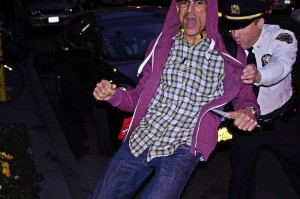 An appeals court in the state of Illinois struck down the state’s eavesdropping law this week, which made it a felony for individuals to record police without their consent.
An appeals court in the state of Illinois struck down the state’s eavesdropping law this week, which made it a felony for individuals to record police without their consent.
The 7th Circuit Court of Appeals released a 66-page ruling Tuesday declaring that the Illinois law is “the broadest of its kind” in the country and “is likely unconstitutional.” It explained that while the state seeks to protect the privacy of personal conversations, discussions with police that are held in public cannot be considered “private.”
“[T]hat interest is not implicated when police officers are performing their duties in public places and engaging in public communications audible to persons who witness the events,” the ruling stated.
Those that recorded discussions with the police had been subject to stiffer prosecution than unauthorized recorded discussions with ordinary citizens.
“[C]ourageous Americans have decided to videotape their interactions with law enforcement as a way to protect themselves from police mistreatment or to prove what happened. Yet, big government is so afraid of people recording the police, it tries to ban the practice. This is completely unconstitutional,” explained Judge Andrew Napolitano of Fox News.
“The First Amendment guarantees our right to free speech, [and] that includes the right to listen to and record what happens in public. Cameras and recording devices are simply modern-day note-taking, and if people are using them to keep the police honest, to tell the truth about law enforcement abusing rights, then it is the right of the people to record these affronts to the Constitution,” he concluded.
Several circuit courts in recent years have released similar opinions declaring that the recording of public police activity is protected by the First Amendment.
Become a Christian News Network Supporter...


